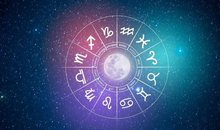
 Flash News
Flash News
The mystery of Renis Dobra's murder, the two main leads of the investigation are revealed
Rama's ultimatum: On Monday, all heads of administrative units must be dismissed
Fires in the country, 4 fires still active, what is the situation?
Rama targets Shkodra prosecutor again: Gjeli wrote philosophical essay with innocence of illegal construction
Wanted for theft, 26-year-old arrested in Durrës
Study reveals 'strong genetic link' between period pain and depression

About 90% of menstruating women and girls experience pain during their periods.
For some, the pain is severe and is also associated with symptoms of depression, which are often thought to be the result of severe menstrual cramps.
But a new study published today in the journal Briefings in Bioinformatics suggests that it may be depression that causes period pain, due to specific genes the authors identified — while other researchers said the interplay of internal mechanisms is more complicated. that's all, writes CNN.
"Depression and menstrual pain significantly affect the lives of women around the world, yet their connection remains unclear," lead author Dr. John Moraros, dean and professor at Xi'an Jiaotong University-Liverpool School of Science, said via email China.
"Our collective goal is to critically analyze these issues and improve care for women by uncovering these complex connections and finding better ways to address them."
Menstrual pain is known as dysmenorrhea, which occurs in the pelvic area or abdomen and usually lasts up to three days after the bleeding starts. Previous studies have shown a link between dysmenorrhea and depression, but have not established a causal link at the genetic level, Moraros said.
"We used a clever approach called Mendelian randomization," he said. "This method works like a natural experiment. It uses genetic data … to see if certain genes linked to depression make women more prone to menstrual cramps. This helps us understand cause and effect without having to test it directly in women."
The authors collected the genetic data of about 600,000 women and girls from European populations and 8,000 from East Asian populations from various sources, including the UK Biobank study, the Psychiatric Genomics Consortium and FinnGen, a large-scale research project in genetics and personalized medicine.
The study showed a "significant" causal link between depression and menstrual cramps, with mood disorder increasing the likelihood of menstrual cramps by 1.51 times, or 51%. The authors found several genetic pathways and proteins through which depression can affect reproductive function.
The research team also found that insomnia, experienced by some people with depression, may exacerbate the association between depression and menstrual cramps. No evidence was found to support a causal effect that menstrual cramps cause depression, the authors said.
The findings help expand the important, and often overlooked, discussion about mental health and period pain.
"I'm excited about some of the potential for some of these larger database-style studies, especially as more genetic testing is advancing," said Dr. Anne-Marie Amies Oelschlager, professor of obstetrics and gynecology at the University of Washington School of Medicine. Bar. She was not involved in the new research.
But there are also concerns about some of the study's broader claims, according to Amies Oelschlager and other experts.
"Where I think the paper is weak is that because there is a strong genetic link, you've attributed it as a causal link, and I think it's still a stretch," said Dr. Claudio Soares, president of the Menopause Society and professor in the department. of psychiatry at Queen's University School of Medicine in Kingston, Ontario. Soares was also not involved in the study.
Experts elaborate on the relationship between depression and menstrual cramps
Many people who have depression or other mood disorders experience more acute pain, said Amies Oelschlager, also chair of the Committee on Clinical-Gynecology Consensus at the American College of Obstetricians and Gynecologists.
This increased intensity is due to the way the brain interprets and experiences pain signals, and depression limits one's ability to cope with pain, she added.
The disorder is also associated with early menopause, another expert said. Furthermore, the Mendelian method assumes that there are no environmental factors that can influence one's depression status, period pain, or genetics—which contradicts the fact that the relationship between these things can be multi-factorial and varied. for everyone, experts said.
Latest news




Rama's ultimatum: On Monday, all heads of administrative units must be dismissed
2025-07-11 11:05:59
Fires in the country, 4 fires still active, what is the situation?
2025-07-11 10:56:23
Government irony: Rama strips Dredha of power, then demands law and order
2025-07-11 10:49:10
German media: Vlora Airport 'kills' one of Europe's largest wetlands!
2025-07-11 10:37:46

Amid the Alps in Theth, the law punishes even those who try to respect it
2025-07-11 10:14:16
Wanted for theft, 26-year-old arrested in Durrës
2025-07-11 10:03:29
After the dismissals, Rama gathers the mayors in Durrës
2025-07-11 09:42:29
Released on bail, Salianji appears before the Probation Service
2025-07-11 09:34:28

Haxhi Qamil Rama and the directors of the Municipalities!
2025-07-11 09:21:35
30 years since the Srebrenica massacre in Bosnia and Herzegovina
2025-07-11 09:10:52

From rhetoric to brandy, POLITICO: 9 things Nigel Farage can do in Albania
2025-07-11 08:53:35
Trump announces 35% tariffs on Canadian goods
2025-07-11 08:39:29
Foreign exchange, how much foreign currencies are sold and bought today
2025-07-11 08:24:25

Horoscope, what do the stars have in store for you today?
2025-07-11 07:59:39
Sun and high temperatures, weather forecast
2025-07-11 07:41:09
Morning Post/ In 2 lines: What mattered yesterday in Albania
2025-07-11 07:20:14
Zhupa: In Theth, some Austrian strategic investors want the empty area
2025-07-10 22:57:08
Malltezi: SPAK admits, we are in a process that began with Balla's false report
2025-07-10 22:34:16

Si të çliroheni nga bllokimet emocionale me anë të ushtrimeve
2025-07-10 21:57:24

Lala: Veliaj wanted to return as mayor
2025-07-10 21:40:46

VIDEO/ Brawl in Bolivian parliament, deputies physically clash
2025-07-10 21:20:30


Albania experienced one of the longest heat waves of the last decade
2025-07-10 21:01:09

The Government approves new procedures for declaring residence in e-Albania
2025-07-10 20:39:32

Koka: Northerners will not forget Edi Rama's racist operation in Theth
2025-07-10 20:18:24
The 3 zodiac signs that will be most affected by the 'Full Moon' of July 10
2025-07-10 20:04:49
New director of the National Center of Cinematography appointed
2025-07-10 19:51:12
Korça/ 40-year-old man jumps from fifth floor balcony, in critical condition
2025-07-10 19:40:19
'Tired Woman'/ The Syndrome That Affects Thousands of Women Every Day
2025-07-10 19:34:02
Jane Birkin's original Hermès bag sells for $10 million
2025-07-10 19:26:22

Britain-Ukraine agreement signed for 5,000 Thales missiles
2025-07-10 19:00:25
Fire in Zvërnec, flames endanger two hotels
2025-07-10 18:57:19
Croatia restores compulsory military service
2025-07-10 18:39:01
Spahia: The great truth of the strong accusation of the residents of Theth
2025-07-10 18:35:07


The Supreme Court left him in prison, Meta addresses the 'Constitution'
2025-07-10 17:57:21
New punishment with 'new' regulations
2025-07-10 17:54:46
EU translator fired over fears for Zelenskyy's safety
2025-07-10 17:45:37
'You are a policeman, but not God, take my soul', protest for Agon Zejnullahu
2025-07-10 17:41:21


Video/ Rama repeats the scenario, kneels before Meloni again
2025-07-10 16:56:31
He set fire to a plot of olive trees, 50-year-old man arrested in Shijak
2025-07-10 16:46:19

Rubio: US and Russia have exchanged new ideas for Ukraine peace talks
2025-07-10 16:36:20
Death of 27-year-old, Lipjan Police Commander Resigns
2025-07-10 16:21:28
Video/ An apartment burns in Tirana near the New Bazaar
2025-07-10 16:09:36


Jensila lights up the internet with her birthday greetings to Ledri
2025-07-10 15:42:08
They're full of pesticides! List of 12 products we need to be careful of
2025-07-10 15:31:04

Worker falls from scaffolding in Shëngjin, urgently sent to Trauma
2025-07-10 15:11:03
Malltezi: Within one day they seized my accounts, properties and shares
2025-07-10 15:01:23
EU: Israel has agreed to more aid to Gaza
2025-07-10 14:55:19


Murder of Reni Dobra, 23-year-old's vehicle pulled from the water
2025-07-10 14:29:23
Trump's tariffs on Brazil raise coffee prices
2025-07-10 14:16:07
Ursula von der Leyen survives no-confidence vote
2025-07-10 14:04:27


Fire in Lezha, flames near electrical substation
2025-07-10 13:32:24
Residents clash with police in Theth, a woman faints
2025-07-10 13:24:38
"Rama and Xanun"
2025-07-10 13:15:46

Zodiac signs most likely to get divorced in July 2025
2025-07-10 12:45:51
A scapegoat for an illegitimate Republic
2025-07-10 12:35:02
"He has devastated his own nation"/ Berisha: Rama imprisons his opponents!
2025-07-10 12:26:54

Albanian man injured with knife in Italy
2025-07-10 12:08:55






23-year-old in Mat drowned with rope, 4 suspects are being held
2025-07-10 10:58:53

After the dismissals, the new director of the Shkodra Police is appointed
2025-07-10 10:30:10
BIRN: Rama's action for public spaces, a repeated spectacle
2025-07-10 10:29:11
Action in Theth, Shkodra Police leaders dismissed
2025-07-10 10:16:28
Fatal accident on the Tirana-Durres highway
2025-07-10 10:01:58
The incinerator does not exist, but the government continues to increase funds
2025-07-10 09:51:45
